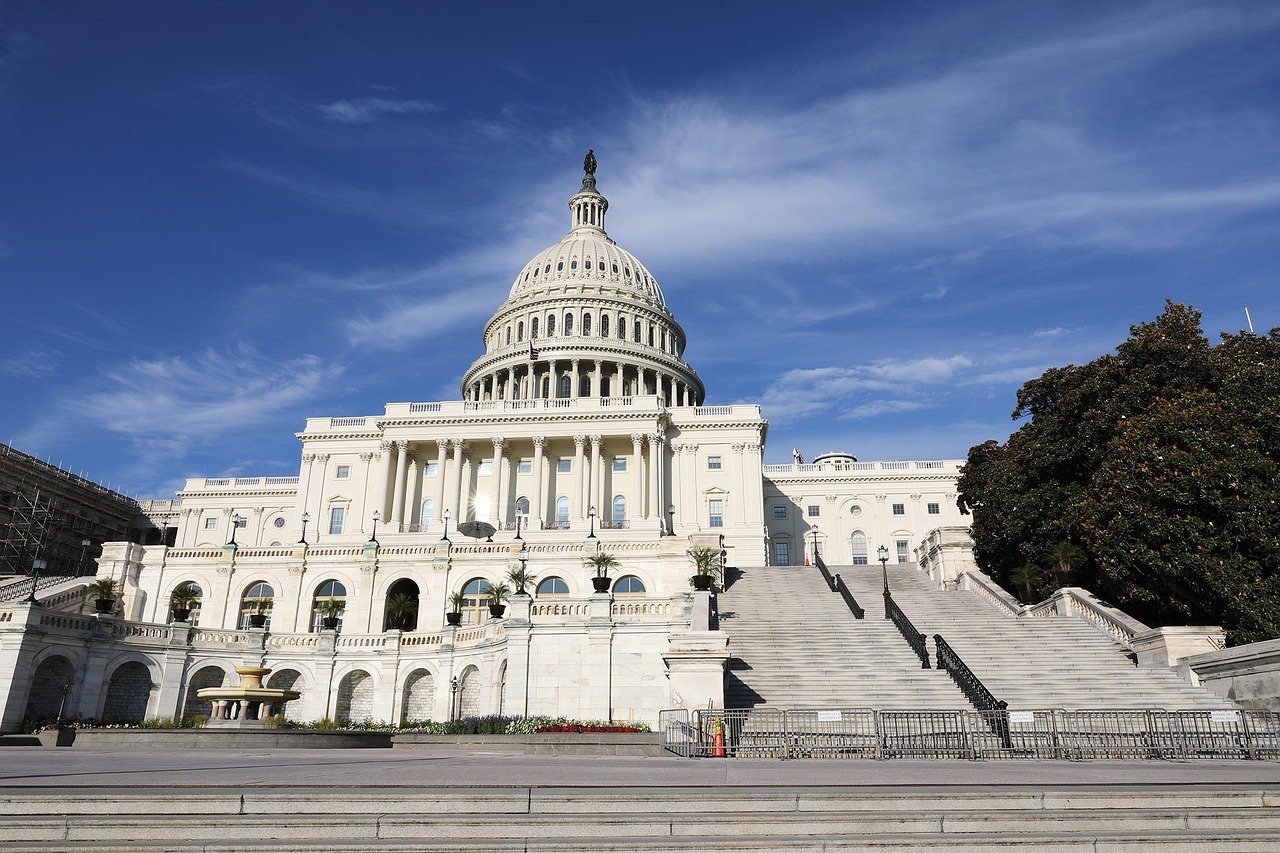By Aidan Quigley, CQ-Roll Call (via TNS).
Congressional leaders reached an agreement on final fiscal 2024 appropriations bills Wednesday that will pave the way for lawmakers to wrap up the process in two packages in the coming days and weeks.
Funding for agencies covered by the Agriculture, Energy-Water, Military Construction-VA and Transportation-HUD bills would be extended from March 1 through March 8 in a stopgap bill. Those agencies’ full-year bills would then join the Interior-Environment and Commerce-Justice-Science bills in the first tranche to be voted on next week.
Appropriators are aiming to release text for the first batch of bills by Sunday in order for the House to be able to turn around and vote Wednesday, before Thursday gets swallowed up by President Joe Biden’s State of the Union address. In theory, that would give the Senate time to get the first package to Biden’s desk before the impacts of a partial shutdown on those agencies subject to the new March 8 deadline are felt.
Stopgap funding for the remaining six bills, which had been set to lapse after March 8, would last through March 22, giving lawmakers enough time to finish turning the deal into legislative text and getting the bills through both chambers. That package would consist of the Defense, Labor-HHS-Education, Homeland Security, Financial Services, State-Foreign Operations and Legislative Branch measures.
Leaders on Wednesday released the two-tiered stopgap extension bill, which the House could vote as soon as Thursday under suspension of the rules. The Senate is expected to follow by the end of the week. However, any one senator could always delay passage, which would result in a short lapse. But the effects of one wouldn’t be felt until Monday, when federal workers would return to work.
The stopgap bill will give the Appropriations committees time “to execute on this deal in principle, including drafting, preparing report language, scoring and other technical matters, and to allow members 72 hours to review,” a joint statement from congressional and appropriations leadership read.
Speaker Mike Johnson, R-La., pushed for a global agreement on major sticking points of the spending bills before agreeing to the stopgap measure needed before Friday at midnight. Negotiators were said to be “close” on finalizing the last six bills, and one source familiar with the talks said they could be done “well in advance” of March 22.
Johnson, Senate Majority Leader Charles E. Schumer, D-N.Y., House Minority Leader Hakeem Jeffries, D-N.Y., and Senate Minority Leader Mitch McConnell, R-K.y., along with the “four corners” of appropriations leadership in both chambers, announced the agreement late Wednesday afternoon.
The “deal in principle,” as the leadership called it in their joint statement, is a major step forward in the fiscal 2024 appropriations process. The stopgap measure lawmakers are expected to clear this week appears likely to be the final one. It is the fourth continuing resolution since the fiscal year began last October.
Johnson and Schumer announced a topline agreement in January, and appropriators reached agreement on final subcommittee allocations a few weeks later. Since then, subcommittees have been negotiating how their allocations will be split, and kicking any open issues up the chain to leadership.
The deal marked resolution of those issues. With all four congressional leaders on board, it appears likely that the packages will pass.
However, the House will have to take up the packages under suspension of the rules, as it is unlikely House Republicans would be able to adopt a rule for two enormous spending packages that conservatives are poised to oppose. Johnson is almost certain to face blowback from the right flank of the House Republican Conference, however, which has been pushing him to take a harder line in the negotiations.
The speaker had vowed to push for conservative policy wins in the appropriations bills; without text, it’s not yet clear where many of the major areas of contention landed.
For example, the Agriculture measure was mired in a debate over abortion and a program restricting food choices for recipients of the Supplemental Nutrition Assistance Program. Additionally, the parties were split on funding levels for the Special Supplemental Nutrition Program for Women, Infants and Children program.
House Agriculture Appropriations Chairman Andy Harris, R-Md., had been pushing for a provision of the House Agriculture measure (HR 4368) to make it into the final bill that would create a pilot program requiring more nutritious foods in SNAP.
The measure faced strong opposition from food retailers, who said grocery store employees would have to enforce the new rules and recipients would be deprived of their ability to choose their food.
While it’s not clear if Harris’ provision made the final bill, he released a statement Wednesday criticizing Democrats for opposing his program, suggesting it likely did not make the cut.
“I am surprised that the Democrats who are so interested in health equity are adamantly opposing converting the SNAP program to a healthier food program, which would result in healthier outcomes for minorities over-represented in the SNAP program,” he said.
___
©2024 CQ-Roll Call, Inc., All Rights Reserved. Visit cqrollcall.com. Distributed by Tribune Content Agency, LLC.
Thanks for reading CPA Practice Advisor!
Subscribe Already registered? Log In
Need more information? Read the FAQs




